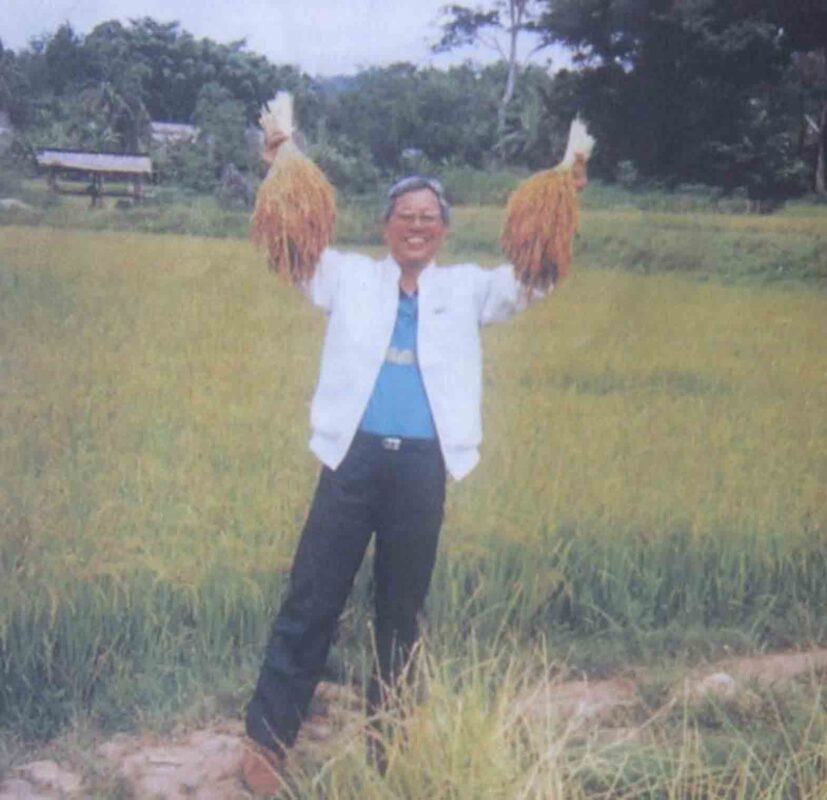
Rev. Fr. Ernesto Molina Amigleo, CICM, is a retired Filipino missionary in Indonesia,
Worried that many of you have already forgotten the life of a Catholic missionary in a far-away place, allow me to share my personal experience as a missionary in Indonesia some time ago.
Asmat is a regency in the south of Irian Jaya. To go to Asmat, one has to take a Cessna plane from Sentani Airport, Jayapura. Taking a motorboat, we had to pass certain swampy areas surrounded by thick forests, as birds in the forest chirped or sang, while crocodiles followed us from behind, just waiting for prey.
The Asmat ethnic group is known for its woodcarving traditions, like making canoes, wooden statues of their ancestors, etc. Deeper in the Asmat region, some people lived on top of the trees and you’d see children adept in climbing trees to reach their homes. I was made aware of a scary fact, that some of the Asmat people “were” cannibals.
Speaking of cannibals, I happened to meet an old man who was sitting outside his make-shift house. I greeted him in Bahasa Indonesia, which he understood. Curious, I asked him if he had ever eaten human flesh. Without hesitation, he said, “Yes, and it was very delicious!”
After staying for quite a while in a place called Sawa-Erma, I had a unique and unforgettable experience. There was an old woman who, one morning, came into our house, the house of the CICM missionaries. She said to me that she wanted to adopt me as her son. I thought it was a way of showing her hospitality, and so I allowed myself to follow the ritual of adoption.
First, she rubbed my forehead and face with a white chalk-like powder and then offered me something to eat. I ate it very slowly, curious what would happen next. That symbolized that I was under her protection during my stay in their place. I appreciated that gesture and thanked her for that.
However, I came to know later from our Catholic Bishop Sowada, who was an anthropologist, that the ritual of adoption done to me was incomplete. Actually, he intimated that, to complete the ritual, she should have stood before me with her legs wide open through which I would pass, symbolizing “birthing.”
And afterwards, the good bishop continued, I should have sucked her breasts as a symbol that I was her “baby.” Of course, we all laughed with the unique idea, and I said “Thank God” that she did not persist to continue with the complete ritual.
In another isolated place, some Papuans, 8 old women and 4 kids to be exact, came to the chapel in time for the celebration of the Holy Thursday of the Holy Week. We waited and waited, but since nobody was coming any longer, I, as assistant parish priest, said, “We will start.” I was quite disappointed. No men came. For the washing of the feet, I washed the feet of 8 old women and 4 children.
After the Mass, I waited for the parish priest to pick me up from that isolated village. He did not come, and I was forced to lay down my tired body on the floor of a village school classroom. I was alone and without any mosquito net. I slept only for a while because the mosquitos kept on feasting on me. Luckily, I was spared from malaria, which was declared public enemy number one of missionaries in Irian Jaya.
Actually, I still have many stories to tell. But let me end by saying that my missionary dialogue with this particular culture makes me realize that despite cultural and other differences, humankind is basically one: one in the spirit, one in the search for God, justice, peace, love, and universal brotherhood, of which a missionary is an instrument.
Rev. Fr. Ernesto Molina Amigleo, CICM, is a retired Filipino missionary in Indonesia, a former Vicar General of the Archdiocese of Makassar.

